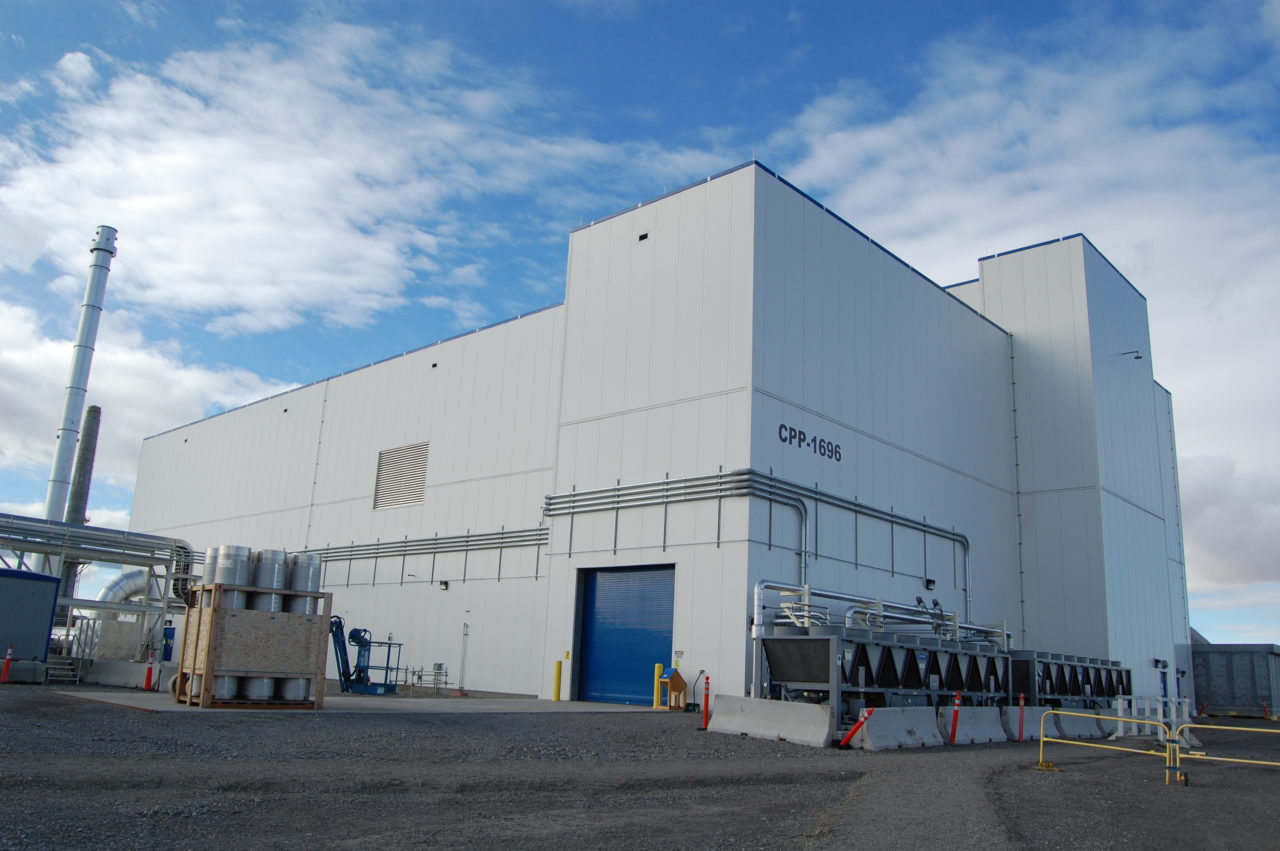
Environmental crews at the Department of Energy’s Idaho National Laboratory have discovered three broken ceramic filter elements are to blame for stalling operations at a plant built to solidify liquid sodium-bearing radioactive waste.
In March, DOE and its Jacobs-led contractor Idaho Environmental Coalition, decided to suspend restart of the Integrated Waste Treatment Unit (IWTU). While attempting the restart, “crews identified abnormal conditions indicating excess solids were bypassing the Process Gas Filter,” DOE said in a Monday statement emailed to Exchange Monitor.
As a result, restart was held up. “Over the last two months, investigations into the cause of the … bypass have been ongoing,” DOE said. “During the week of June 3rd, crews found three broken ceramic filter elements which caused the bypass,” DOE said.
“The cause of the broken elements is still under investigation along with the corrective actions to address the issue,” DOE added. The agency statement offered no timeline for the IWTU restart. Ceramic filters are known for their ability to withstand heat and corrosion and are frequently used in industrial settings, DOE has said.
The department hoped to get the IWTU going again back in March following a months-long maintenance outage.
The broken ceramic filter elements mark the latest problem to bedevil the IWTU, meant to solidify about 900,000 gallons of liquid sodium-bearing waste into a more stable granular form for storage and disposal. After starting up in April 2023, the IWTU has treated about 68,000 gallons or less than 10% of the total 900,000 gallons. The facility, however, has spent as much time offline as operational.
DOE and the environmental prime must iron out the ongoing problems in order to meet their goal of solidifying all the radioactive sodium waste at Idaho within seven years.
“DOE and its contractor Idaho Environmental Coalition, LLC will continue to operate in accordance with its permits and will share all operational and monitoring data with the Idaho Department of Environmental Quality,” DOE went on to say.
Since March 2015, the state of Idaho has issued DOE about $14.3 million in civil penalties for failing to meet milestones for treating sodium bearing waste, Nicole Hernandez, an environment & sustainability director for DOE, told the Citizens Advisory Board for Idaho cleanup during a Wednesday meeting. The federal agency has already retired more than half of the total, $7.3 billion, by performing various supplemental environmental projects for the state.
Construction of the IWTU was completed in 2012 but the facility never worked, as intended. Fluor Idaho and subsequently the Jacobs-led environmental group spent more than a decade getting the $1.4-billion facility to its current status.